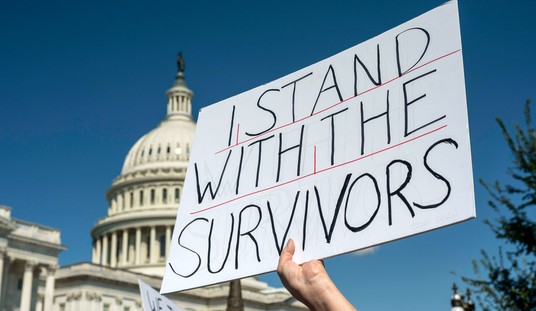President Obama is pushing for a minimum-wage hike he says will give a needed boost to Americans struggling to make ends meet, but Republicans say would just work against an economy trying to recover and people trying to find jobs.
In his State of the Union address, Obama outlined the key proposals on his agenda for the second term, including a call to raise the federal minimum wage for the first time since 2009.
“Even with the tax relief we’ve put in place, a family with two kids that earns the minimum wage still lives below the poverty line. That’s wrong,” Obama said. “Tonight, let’s declare that in the wealthiest nation on Earth, no one who works full time should have to live in poverty, and raise the federal minimum wage to $9 an hour. This single step would raise the income of millions of working families.”
Obama’s proposal would boost the nominal wage to $9 per hour by the end of 2015 – an increase of 24 percent from the current minimum of $7.25 per hour. Obama also suggested indexing the minimum wage to inflation after 2015.
Data from the Organisation for Economic Co-operation and Development (OECD) shows that the federal minimum wage in the United States is lower than it is in other developed countries when adjusted for currencies’ different levels of purchasing power. Even if the minimum were raised to $9 per hour, it would still be behind several OECD members. According to the The Economist, America’s current minimum wage is close to the lowest among OECD members, equaling 38 percent of the median wage in 2011.
Twenty states have minimum wages above the federal rate, compared to 15 in 2010. Washington state has a minimum wage of $9.19 – the highest at the state-level. San Francisco increased its minimum this year to $10.55, making it the highest mandated minimum wage in the nation.
The last time the U.S. had an increase in the minimum wage was in 2009. That minimum-wage legislation passed during the Bush administration in 2007, after Democrats had vowed to approve an increase if they won control of Congress in the midterm elections in 2006. Under the Fair Minimum Wage Act – which passed as part of a larger appropriations bill – the minimum wage increased yearly from 2007 until 2009, when it reached its current level.
Obama’s proposal drew the predicted response: liberal and labor groups said it would raise the spending power of the poorest workers and reduce poverty. On the other hand, conservatives and businesses said it would increase unemployment among low-skilled workers.
“President Obama’s remarks tonight show he understands that a higher minimum wage is key to getting the economy back on track for working people and the middle class,” said Christine Owens, executive director of the National Employment Law Project.
Overall, Republican leaders responded negatively to Obama’s proposals. Senate Minority Leader Mitch McConnell (R-Ky.) called Obama’s speech a “liberal boilerplate that any Democratic lawmaker could have given at any time in recent memory.”
Sen. Marco Rubio (R-Fla.) denounced the proposed minimum wage hike as bad policy.
“I want people to make a lot more than $9 an hour. I want people to make as much as they can,” responded Rubio to Charlie Rose on This Morning.
But Rubio made clear his belief that minimum wage laws do not work.
“Nine dollars is not enough. The problem is that you can’t do that by mandating it in the minimum wage laws. Minimum wage laws have never worked in terms of helping the middle class attain prosperity,” Rubio said.
Numerous studies have focused on the effects of raising the minimum wage in the past few decades, often coming to very different conclusions.
David Neumark and William Wascher conducted a comprehensive literature review on the employment effects of minimum wage and found that “among the papers we view as providing the most credible evidence, almost all point to negative employment effects, both for the United States as well as for many other countries.”
Michael R. Strain, a research fellow at the American Enterprise Institute, says the minimum wage will make it more costly for firms to employ workers – particularly low-skilled workers who are most likely to earn the minimum wage. In addition, raising minimum wages may reduce employer job training and worker benefits.
Economists have generally agreed that minimum wages are price distortions that would reduce the demand for workers affected by the wage. But since the 1990s, that assumption has come under fire from an increasing body of research.
Oft-cited research by Alan Krueger and David Card studied employment changes following minimum wage increases and found no evidence that they caused a fall in employment when compared to areas that did not see increases.
The White House cites approvingly another study by Arindrajit Dube, William Lester, and Michael Reich that compared adjacent counties that touch a state border where there is a difference in the mandated minimum wage in each state. Their research also found no negative effect on employment.
Many economists have suggested alternatives to the minimum wage. Milton Friedman supported the idea of a government-guaranteed level of income in the form of a negative income tax in which people earning below a certain amount receive supplemental pay from the government instead of paying taxes.
Others propose increasing the Earned Income Tax Credit (EITC), a government program that provides a payment to workers in low-income households. When the credit exceeds the amount of tax owed, it results in a tax refund to those who qualify. Advocates of this option claim that the EITC encourages people to work over welfare and does not create any disincentives for employers to hire.
One of the major drawbacks of expanding any tax credit programs, particularly at a time when politicians are under pressure not to spend, is that it would increase the federal budget deficit. Nonetheless, many economists believe that raising the living standards through policies like the EITC provides a more effective way of helping the poor without discouraging them to work.
The Obama administration has implemented in the past several tax policies it said would help achieve its goal of helping the middle class.
The administration included the Making Work Pay tax credit in the 2009 stimulus package, which provided a refundable tax credit of up to $400 for working individuals and up to $800 for married taxpayers. But Congress chose not to renew it in 2011. In 2010, the Obama administration introduced a payroll tax cut that cut employees’ share of Social Security payroll taxes by two percentage points in 2011 and 2012 – which Republicans, and some Democrats, refused to extend into 2013.
The government also expanded a variety of refundable tax credits for low-income workers – notably the Earned Income Tax Credit and the Child Tax Credit – in the stimulus package, and those were extended for another five years as part of the “fiscal cliff” deal.
Obama, who sounds a frequent refrain about helping the middle class, said in his address that for more than a decade wages and incomes have not moved while corporate profits have soared to all-time highs. While in his speech the president urged both Democrats and Republicans to “set party interest aside,” the White House seems intent on pressing Republicans to pursue the administration’s economic agenda.
“If the GOP is opposed to raising the minimum wage, what is their plan to ensure people who work full time don’t live in poverty?” said Dan Pfeiffer, a senior White House adviser, in a tweet last Wednesday.
Most recent increases in the minimum wage occurred when the economy was expanding, and therefore Republicans did not push back as much. This time, in the midst of a weak economic recovery, the administration will likely have a hard time convincing Congress to raise the minimum wage.
House Majority Leader John Boehner (R-Ohio) signaled in his comments to reporters last Wednesday that Obama’s proposal would have a small chance of passing the House.
“When you raise the price of employment, guess what happens? You get less of it. At a time when Americans are still asking the question, ‘where are the jobs?’ why would we want to make it harder for small employers to hire people?” Boehner said.









Join the conversation as a VIP Member